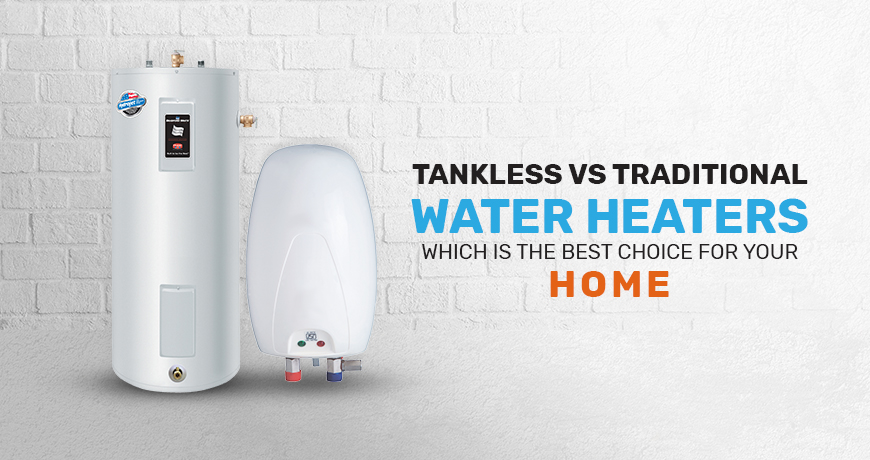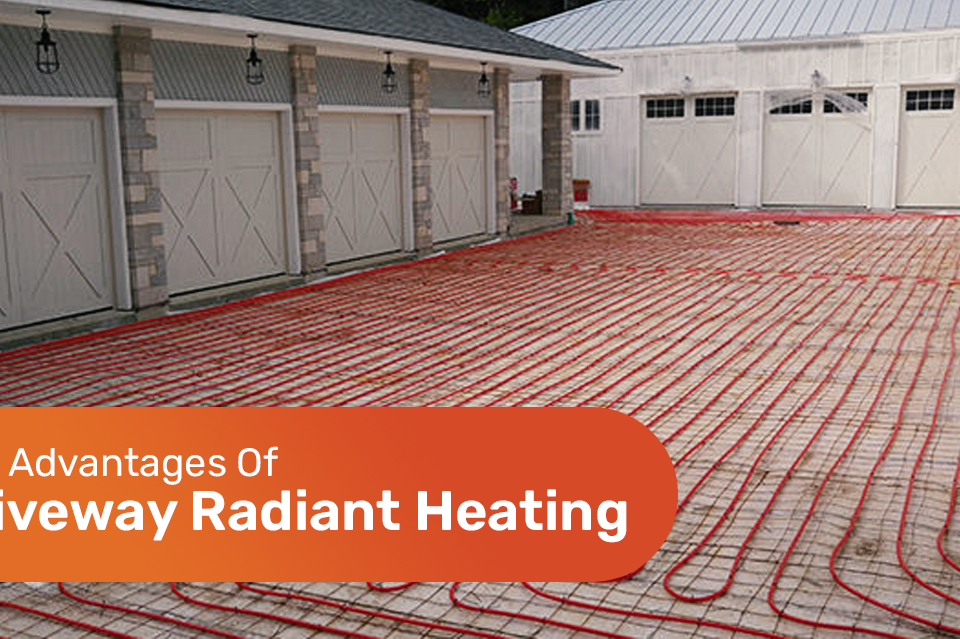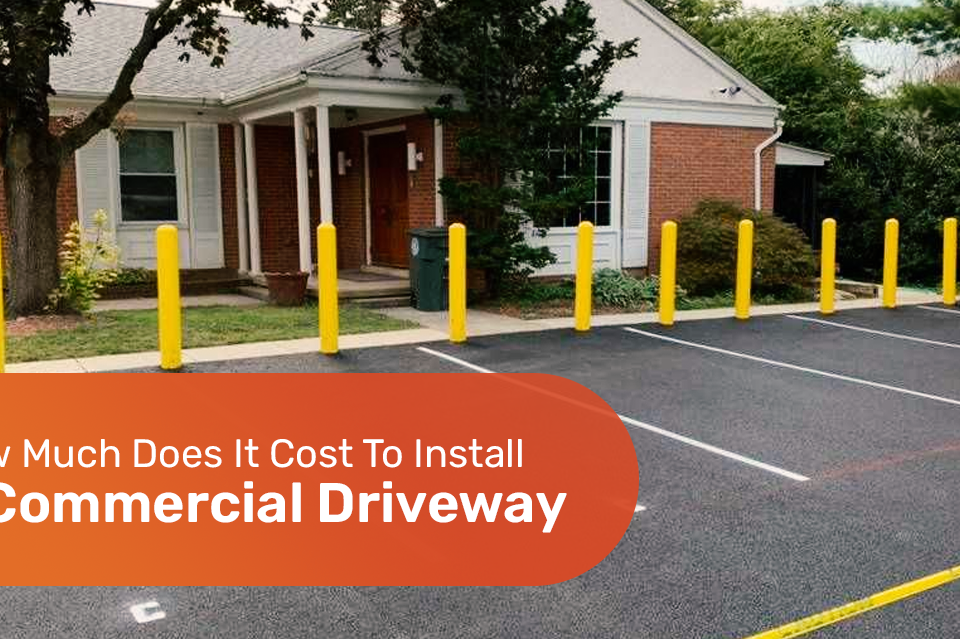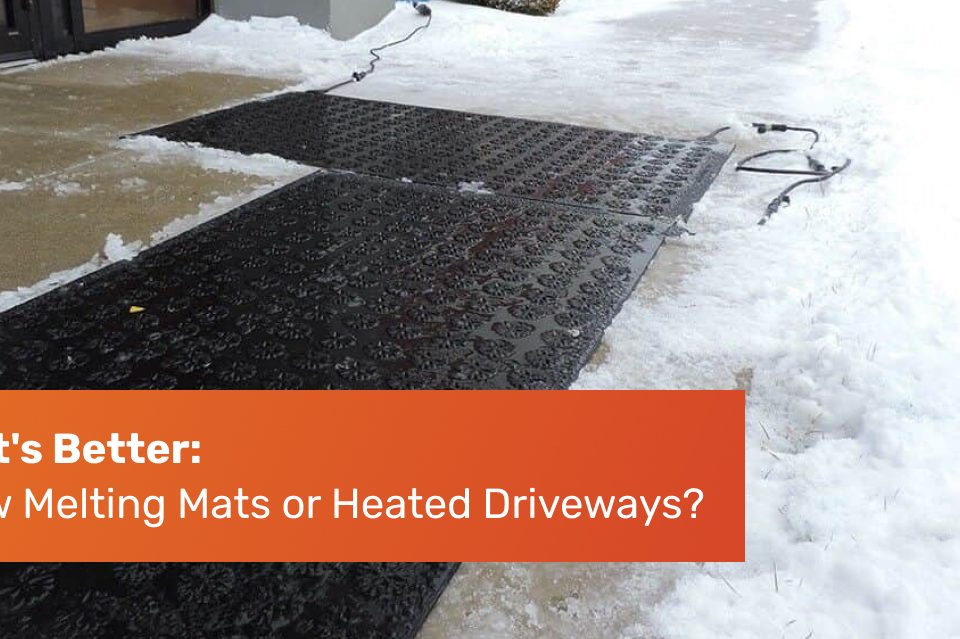HVAC installation & Plumbing Services in Mississauga & Sentral HVAC Repair

The Benefits of Regular AC Maintenance
May 27, 2023
5 Reasons Why Every Kitchen Needs an Exhaust Fan
July 7, 2023Choosing the right water heater installation for your home is crucial to ensure that you have a reliable and efficient hot water supply. Two popular options available in the market are tankless and traditional storage-based systems. While both types of water heaters serve the same purpose. They differ significantly in how they operate, their energy efficiency, and more.
In this comprehensive guide, Sentral HVAC Plumbing will compare tankless vs traditional storage-based water heaters to help you make an informed decision about which one is best suited for your home needs! We’ll cover the pros and cons of each option, highlight their benefits and drawbacks. And outline important factors to consider when making your choice. By reading through this article carefully, you’ll be equipped with all necessary information required to select an appropriate Water Heating System as per your specific requirements!
Pros and Cons of Tankless Water Heaters
Tankless water heaters have been gaining popularity in recent years due to their energy efficiency and space-saving design. However, like any other home appliance, they come with their own set of pros and cons. Here are some of the key advantages and disadvantages of tankless water heaters:
Pros
- Energy Efficiency: Tankless systems only heat up water when you need it. Reducing standby losses which leads to lower energy bills.
- Space Saving: These units take up significantly less space than traditional storage-based systems as they do not require a huge tank for storing hot water
- Longevity- With proper maintenance ,tankless Water Heaters can last up to 20 years or more
- Endless Supply: As there is no limit on stored hot water capacity; homeowners can enjoy an endless supply of hot water whenever needed
- Flexibility in Installation – These units can be installed almost anywhere in your house unlike traditional models that require dedicated spaces within your homes. This makes them suitable for smaller apartments or condos.
Cons
- Initial Costs- Tankless models tend to be more expensive initially than traditional storage-based systems
- Limited Output Capacity – Although they provide instant hot water. They may not always be able to keep up with high demand scenarios such as simultaneous use of multiple appliances at once.
- Complexity – Unlike traditional models these new age gadgets comprise complex parts requiring professional assistance during installation/maintenance
- Equipment Life Span – While most tankless units have a longer lifespan than conventional ones; issues such as hard-water buildup or poor maintenance could impact its longevity leading to costly repairs/replacement.
- Water Quality Issues– In regions where the hardness level is higher. Frequent descaling might become necessary every few months depending on usage patterns.
In summary, while tankless Water Heaters offer several benefits including energy efficiency, longer lifespan, endlessly supply etc. It’s important that homeowners assess their specific requirements before making a decision. If you have a small household with lower hot water requirements, Tankless Water Heaters could be great options for you! However, in larger households with high demand scenarios. Traditional storage-based systems may still be the better choice due to their higher output capacities and lower initial costs.
Benefits and Drawbacks of Traditional Storage-Based Systems
Here are some of the key advantages and disadvantages of traditional storage-based systems:
Benefits
- Lower Initial Cost: Traditional models tend to be less expensive than Tankless Water Heaters. Making them an attractive option for households on a budget
- Higher output capacity – These units store large amounts (usually 30-50 gallons) of hot water which ensures that there is always enough supply available even during periods of high demand.
- Simple Design – Storage based Water Heaters comprise simple designs requiring minimal maintenance
- Familiarity – As these models have been around for several decades now; most plumbing professionals/technicians are familiar with their installation/maintenance requirements.
- Reliable – These systems provide consistent performance without any major issues or breakdowns when properly maintained.
Drawbacks
- High Energy Bills – Because these units constantly keep heating stored hot water whether it’s needed or not; it leads to higher energy bills in comparison to tankless options
- Limited Lifespan– Most conventional models last between 8-12 years before requiring replacement/repairs due to wear & tear caused by usage patterns
- Space Considerations– They require dedicated spaces within your homes such as basements/closets etc. which could prove challenging in smaller apartments/condos
- Hot Water Shortages – In scenarios where multiple appliances are used simultaneously; there may be shortages leading to cold showers or delayed use.
- Environmental Impact – Due to their constant energy consumption; storage-based systems contribute more towards greenhouse gas emissions compared with Tankless alternatives.
Ultimately, the choice between a tankless or traditional water heaters depends on your specific needs and budget. Consider factors like energy efficiency, output capacity, initial costs, maintenance requirements and environmental impact before making a decision that best suits your home!




